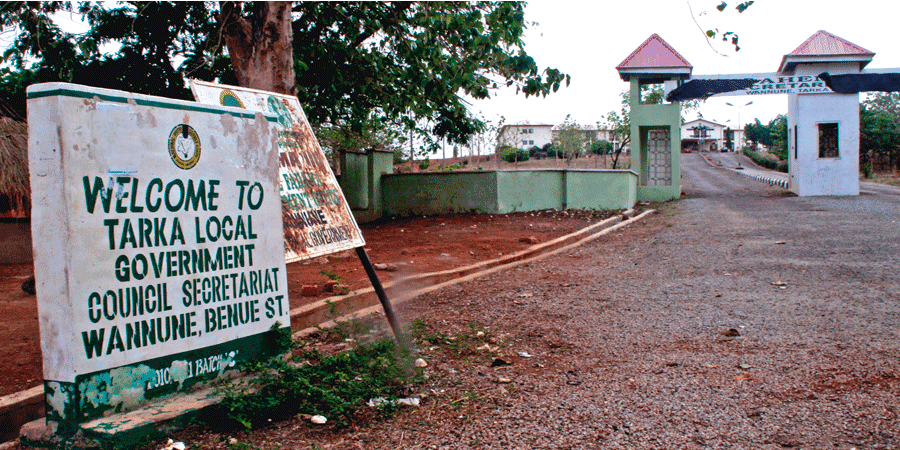
Tarka Local Government Area
Tarka Local Government Area was created on December 8th, 1996 by the Late Gen. Sani Abacha’s administration vide a presidential proclamation. The area was part of the present Gboko Local Government Area and administered as Mbakor District.
The local government area is named after Late Chief (Dr.) Joseph Sarwuan Tarka, a renowned Mbakor born front-line Nigerian nationalist and fighter for minority rights. This development was intended to immortalize the name of the senator.
The original inhabitants of Tarka Local Government Area are the Mbakor of Tiv ethnic extraction. They are of Jemgbagh parental lineage. The creation of the local government attracted other ethnic groups to the area, who have come mainly for trade and public service jobs like the police, immigration, the State Security Service, as well as other state jobs.
The relief is characterized by low-level land and guinea savannah vegetation with fairly tall sparsely grown trees and grasses. The vegetation of the area favors the growth of both root and grain crops simultaneously. There is also large vegetable production. As a geographical microcosm of the Nigerian superstructure.
Headquarters:
Wannune
Boundaries:
- Guma Local Government Area to the North,
- Gwer East Local Government Area to the West,
- Buruku Local Government Area to the East, and
- Gboko Local Government Area to the South.
The Local government Area lies in the transitional zone between the North and South of Nigeria.
Landmass:
Tarka has a land area of about 377.679 square kilometers
Population:
79,280 (Census, 2006).
Location:
Tarka Local Government Area of Benue State lies between longitude 8045’ and 9000’E and latitude 7030’ and 7045’N.
Council Wards And polling units:
The local government area is divided into Ten council wards namely:
- Shitile,
- Tongov,
- Mbakwakem,
- Mbaajir,
- Mbaigba,
- Mbachaverikyondo,
- Mbaikyo or Mbayia,
- Mbaayo,
- Mbanyagber and
- Mbaikyaa.
Tarka has Sixty Two (62) polling units.
Weather:
Tarka Local Government experiences a typical tropical climate with two distinct seasons:
- The rainy season (April to October) with annual rainfall in the range of 150 – 180mm.
- The dry season (November and ends in March) Temperature fluctuates from 23oC to 30oC most of the year.
Ethnic composition:
These ethnicities mainly
- Tiv,
- Hausa,
- Fulani,
- Ibo,
- Urhobo,
- Ijawa,
- Yoruba and so on.
Are nucleated in the fast-growing peri-urban centres such as:
- Wannune,
- Asukunya,
- Uchi,
- Tarhembe, and
- Tiortyu among others.
Agriculture:
Agriculture is the main economic activity of the Mbakor people.
About 95% of the population of the entire Tarka Local Government is rural with a density of about 213 inhabitants per square kilometre. The settlement pattern in the area like any other Tiv-speaking areas of the state has changed in compound or village settlements to isolated hamlets settlement type in search for agricultural land hence this increase the territory for the use of land by the family.
